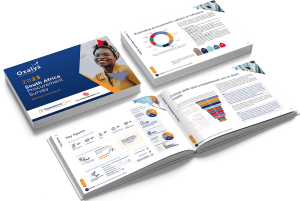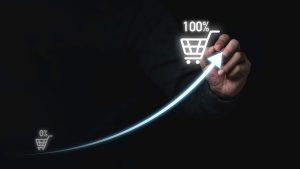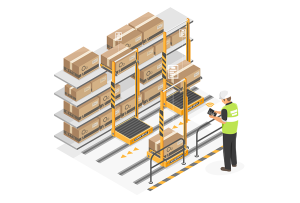Blockchain is almost everywhere and is getting a lot of hype. It is largely because blockchain is the underlying technology behind Bitcoin, a digital currency (a.k.a. a cryptocurrency) that received a lot of coverage in the media. In the wake of the cryptocurrency craze, blockchain has continued to attract more and more attention.
Blockchain can have a significant impact on business because it can be a powerful tool when establishing trust, which is at the heart of business and procurement.
In this month’s SmartProcurement, Bertrand Malterverne, a Solutions Consultant who helps organisations digitally transform their procurement practices, highlights how to use Blockchain to make a real difference.
Some reasons why blockchain is important for procurement
Blockchain is the ‘Internet of value’. It keeps track of anything that can be recorded (financial transactions, contracts, physical assets, supply chain information, etc.) but there is no single person or organisation in charge of the entire chain. In fact, it is open and everyone in the chain can see the detail of each record.
Blockchain data is immutable and impartial. It is shared among parties (publicly or privately) and cannot be changed by anyone. Therefore, blockchain is a form of digital trust.
More trust makes doing business easier, streamlines many processes and creates transparency. Furthermore, and more importantly, it means that blockchain can serve as the backbone for new types of co-operation between machines (M2M) and between humans (H2H) that were, until now, limited by the cost of building trust or by a lack of trust altogether.
1. Streamlined operations
At each step of the value chain, from the extraction of raw materials to customer delivery, blockchain technology can store and record every transaction and exchange of ownership (as long as manual entries are sincere and valid). This provides companies with a complete, trustworthy and traceable record that facilitates and simplifies the process of due diligence, which companies need to complete in order to ensure compliance with rules.
Not only would this streamline internal processes (increasing efficiency and reducing costs), it would also establish more trust between companies, suppliers, regulatory bodies and the consumer. This is why many companies with a complex supply chain in industries with strict regulations and requirements related to product traceability are already testing blockchain technology.
2. Better co-operation between people
Blockchain can also enhance H2H co-operation because this also heavily relies on trust. This is particularly true when partners do not know each other, which is common in new business models.
Because of its cryptographic nature, blockchain embeds mechanisms that ensure that users are who they say they are. These mechanisms cover a user’s identity and extend to other credentials as well. Also, reputation is nothing more than the result of past transactions. As noted earlier, blockchain logs all transactions securely and transparently. Thus, blockchain makes it easy to measure and know someone’s reputation. Blockchain, therefore, makes it easier to do business with new partners by reducing the costs and risks which are often associated with new business relationships.
3. Better co-operation between machines
With blockchain, organisations can trust data and execute automated programmes (called ‘smart contracts’). This creates a distributed system that is the ideal infrastructure for machine-based activities that the Internet of Things (IoT) has been lacking. It opens the door to new apps that run precisely as programmed. For example, companies can track the movements of a container at all times. Whenever it reaches specific points, the blockchain will record the activity and smart contracts will execute automated actions (e.g. registration for customs, payments, etc.).
4. Better insights through technology convergence
The combination of the IoT, artificial intelligence (AI) and blockchain also represents an opportunity to address the ‘big data’ challenge. This challenge can be summarised in the six Vs: Value, Volume, Variety, Velocity, Veracity and Variability that can be used to develop new and better insights that will drive better decisions:
– IoT provides the ability to collect more information (Volume) and in a real-time manner (Velocity and Variability). This is especially true when monitoring physical supply chains (e.g. sensors and geolocation for containers) and when changing demand (e.g. sensors in machines for predictive maintenance).
– Big data makes it possible to consolidate, aggregate and slice more data coming from multiple sources (Variety), both internal (e.g. enterprise resource planning (ERP) or other information systems) and external (e.g. IoT sensors and third-party data providers).
– Blockchain increases trust and reliability (Veracity) in the data collected and stored, which is a critical factor when trusting the insights and decisions derived from that data. It also creates a ‘data backbone’ that can be utilised to create interoperability (internally and externally), opening the door to further automation and ‘interconnections’ between physical and financial supply chains.
– AI exhibits tremendous computational capacity to analyse massive sets of data to build new knowledge (Value) and to continually learn and improve from new data.
Conclusion
Organisations should proceed cautiously and be aware of what blockchain can and cannot do. It is undoubtedly a powerful and exciting technology, but is not yet fully mature and has several limitations, which explains why it is still far from being widely adopted, despite all the hype surrounding it. However, the newest (and future) generations of blockchain will make it a more viable application than what is readily available now. These new generations, similar to the older ones, will not save the world, but they do represent a real and unique opportunity to create a platform / protocol which (new) businesses can build on, and which can help them grow.


























